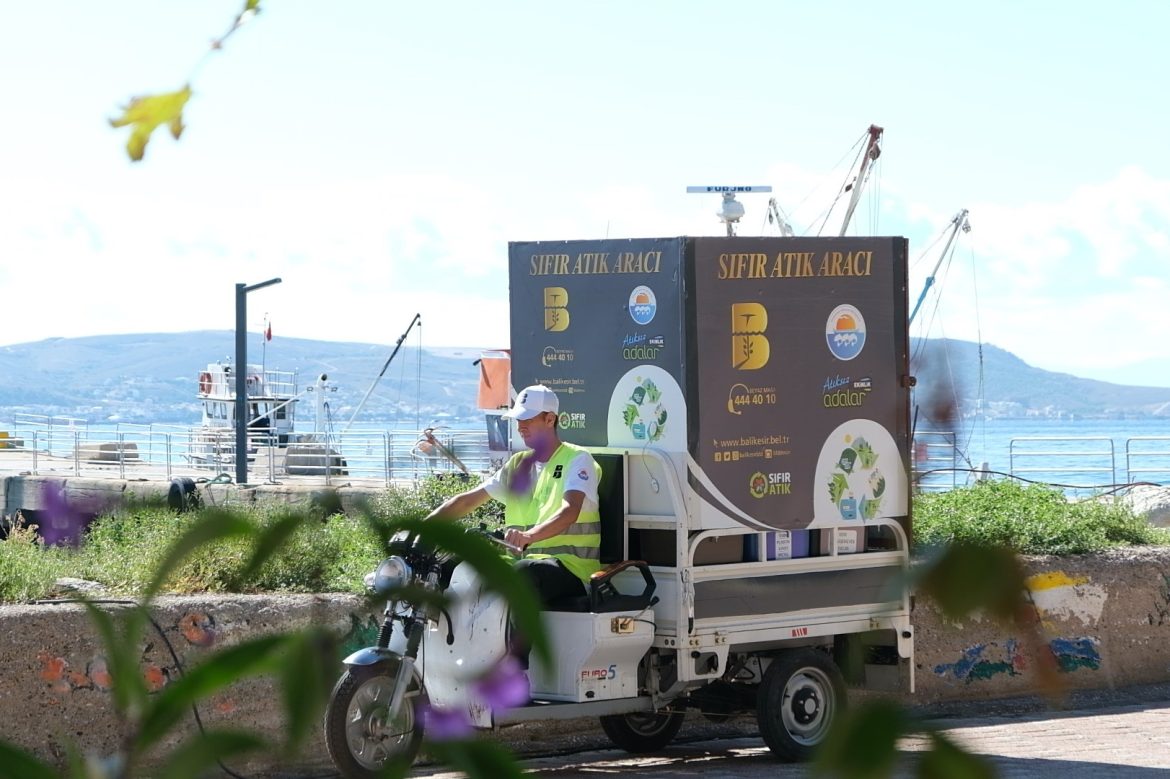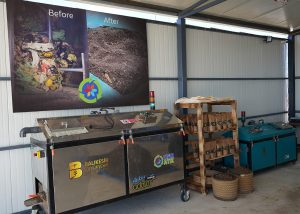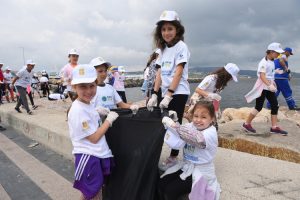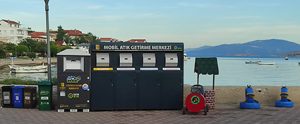
Türkiye’s First Zero-Waste Island
Ekinlik is a delightful island situated in the Sea of Marmara, adjacent to the more renowned Marmara and Avşa Islands, with a modest size, covering just km2. As of the 2014 census, the island is home to a mere 102 residents. Notably, Ekinlik has earned the distinction of being the sole Turkish island to embrace a zero-waste policy. Administered by the Marmara District of the Balıkesir Metropolitan Municipality, the island now serves as a pioneering site for the implementation of this ground-breaking initiative. The island’s compact size, minimal population, and manageable waste volume have played pivotal roles in ensuring the practicality and sustainability of this progressive undertaking.
 Household waste on Ekinlik Island undergoes a meticulous sorting process based on the principles of the circular economy, emphasising “separation at source” for both organic and inorganic materials. This means that waste is categorised at its point of origin, be it at homes, workplaces, etc., and then properly disposed of into designated waste bins or containers. To uphold this fundamental principle, a triple-collection system has been implemented on the island. Specifically, three distinct containers for organic waste, inorganic waste, and non-recyclable waste have replaced the previously mixed waste containers -and the old bins have been removed.
Household waste on Ekinlik Island undergoes a meticulous sorting process based on the principles of the circular economy, emphasising “separation at source” for both organic and inorganic materials. This means that waste is categorised at its point of origin, be it at homes, workplaces, etc., and then properly disposed of into designated waste bins or containers. To uphold this fundamental principle, a triple-collection system has been implemented on the island. Specifically, three distinct containers for organic waste, inorganic waste, and non-recyclable waste have replaced the previously mixed waste containers -and the old bins have been removed.
In further support of waste separation, a mobile waste collection centre has been established, facilitating residents in the proper separation of their waste. Inorganic materials like glass, metal, paper, and plastic are directed to recycling facilities, while specific items such as batteries, electronic waste, textiles, and vegetable oil are collected separately to mitigate their adverse environmental impact. Later, recyclable materials are utilised in different ways.
Biodegradable waste such as kitchen scraps, cooked food waste, and other organic wastes, undergoes a transformation process within enclosed machines, ultimately producing compost that serves as a valuable soil enhancer. This enriched “fertiliser” is then employed in parks and gardens, contributing to the island’s sustainable and eco-friendly practices.
Plastic bags have been entirely phased out on Ekinlik Island. The energy requirements of the islanders are fulfilled through solar panels, while the purification of seawater meets their water needs. Volkan Karateke, the Head of the Environmental Protection and Control Department of Balıkesir Metropolitan Municipality, states, “Our plan is to extend this initiative, a pivotal step from a linear economy to a circular one, across all our islands.” Various awareness-raising activities, especially targeting children and young people, are also underway to foster a culture of waste-free living.
Aligned with the United Nations Sustainable Development Goals, the strategy of waste reduction, recycling, and the establishment of systems in harmony with the principles of the circular economy holds a paramount position. An essential challenge hindering zero waste initiatives lies in the necessity to alter personal habits, notably the practice of separating waste at its source. Therefore, while endeavours in smaller, less populated, and more manageable communities like Ekinlik Island are significant, we aspire for the swift implementation of larger-scale, impactful projects that can instigate genuine change.
